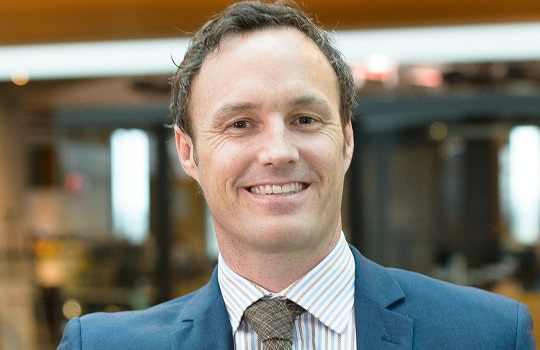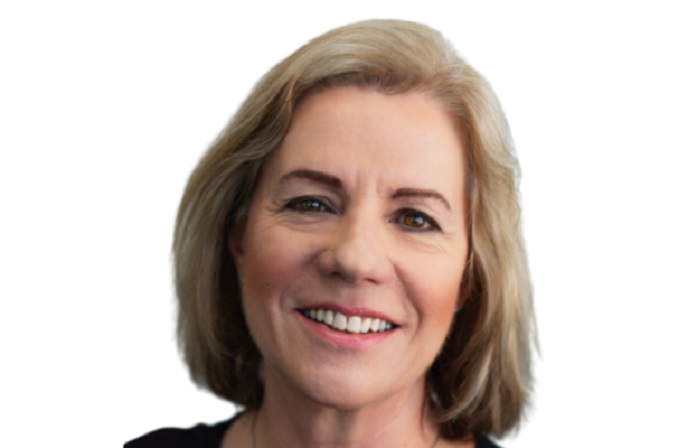
Sovereign’s Chief Marketing Officer speaks with FST Media about the future of wearables and biometrics in the insurance industry.
FST Media: What would be the biggest technology game changer for the insurance industry in the year ahead?
Lamers: The biggest game changer is going to be wearable devices and advances in medical care, which will grow knowledge amongst consumers – people will become more active in managing their health and their health data, including what doctors collect. If you look at how both the health insurance and the life insurance industries have worked, it has been all about underwriting, taking an evaluation and then assessing the risk involved. With wearable technology, insurance companies could do evaluations on an hourly, daily or weekly basis. If you think about medical technology, such as DNA typing, you will be able to DNA type any individual and accurately assess risk, and our customers will be using this data to also assess their own risks. Whether this is a good development and whether we want to do this as an industry, we do not yet know. However, technology is changing so significantly that even regulators in the medical industry are struggling to keep up with it. Wearables are going to drive a lot of change in both customer behaviour and expectations surrounding how we behave.
FST Media: How will big data, analytics and business intelligence shape customer experience at Sovereign?
Lamers: We are just starting on the journey of customer analytics and we believe that the data we already have needs to be used more wisely. Once we are using that data in a way that respects what the customers want, then we can actually start looking at some of the big data in new and exciting ways. Customers are willing to share a lot of information about them themselves, if we use it to benefit them. Big data, and data in general, is going to profoundly change health and how customer interaction happens in the future.
FST Media: How is Sovereign managing the conversations between IT and banking?
Lamers: The reality is there are two parts to how marketing and IT need to work together. There is the process part, which is how you actually plan campaigns from start to finish and that includes technology. It is how you perform technological development that involves a marketing team at the right time. The second part is looking at the human side of how you work together as teams, how you collaborate and how you change how you work. Just like other banks and insurance companies in New Zealand, we are managing some of those conversations really well but there are still some areas we need to work on.
FST Media: Regarding your core banking infrastructure, are you in the process of simplification for Sovereign or have you succeeded?
Lamers: We are still in the process of simplifying our core insurance infrastructure while creating the agility needed to adapt to a rapidly changing environment. There will be some complexity that stays, because customers value some of that complexity, not all complexity is bad. It is actually the step of removing some of our more complex processes that our customers do not value at all.
FST Media: How has technology enabled Sovereign’s international health cover, and how will you measure its success?
Lamers: Sovereign’s international health cover is an example of where we have understood what our customers need and responded to it. We know that a lot of New Zealanders travel between Australia and New Zealand frequently, and there are New Zealanders who move to Australia for considerable periods of time and then move back. We allow customers to take their policy with them. There should not be a border stop that says your health policy is no longer relevant. We have worked with institutions in Australia to make this possible and delivered the initiative with almost no technological input. The reason why we can do that is because we have thought through what our customers need and used existing channels to make it happen. It is all about teams working out how they can execute these initiatives in the most efficient way.
FST Media: What role will wearables and biometrics play in the future of the insurance industry?
Lamers: We have the same view as our customers – we want them to be healthy – and wearables are just one step along the path of consumers understanding more about themselves. Our customers want to be able to choose their devices and share their progress where it benefits them. I was just reading the other day about ingestibles, where people are using ingestibles to track things such as whether medication is being taken. No matter what the technology is, if it is going to play a role in actually helping people be healthier, then we are interested in looking at it.
FST Media: From a marketing perspective, what do wearables offer?
Lamers: For many people, insurance is not a category they engage with on a daily, weekly, monthly or even quarterly basis. Wearables create a way for us to talk to customers in a way that is relevant and customised to them. There are many programs that link your wearable data to your health insurance company and can ultimately lower your premium. This has some real benefits to it, but there have also been some real failures. Not all customers want to engage with wearables, so it is about how we can give people a choice. Ultimately, wearables will profoundly change the frequency of interactions and the way in which we talk to our customers.
FST Media: What is proving to be your most effective customer acquisition channel and why?
Lamers: A lot of advisors in New Zealand are still relatively small businesses, so a key focus is how we – as a larger company – can help these businesses grow and make the most of our channels, such as selling online. It is about servicing customers via the internet, using video conferencing and looking into a whole suite of technology surrounding our digital channels.
FST Media: Every leader has a legacy they wish to be remembered for, what is yours?
Lamers: I would love to leave knowing I have helped our team become great leaders who will continue to grow the industry and be the difference for our customers and New Zealanders.





